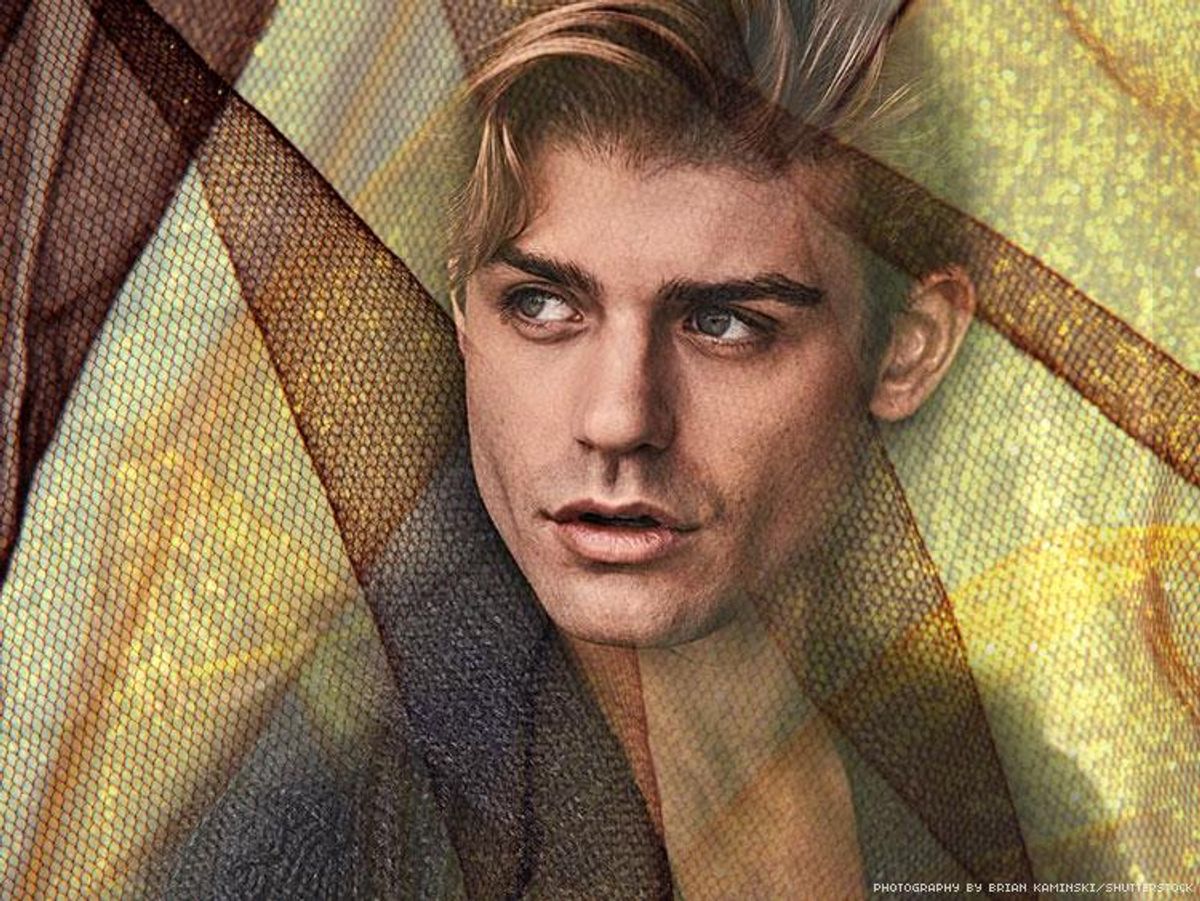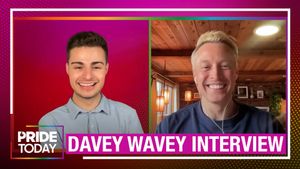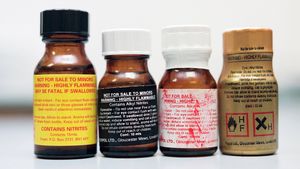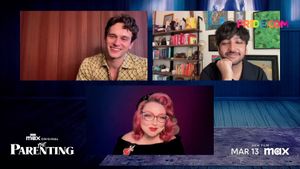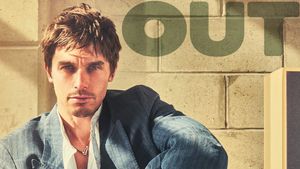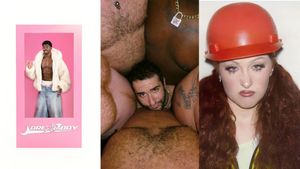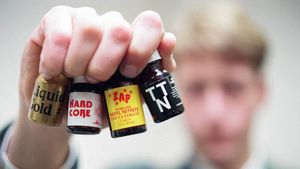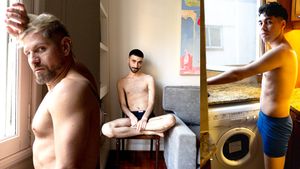Garrett Clayton will not discuss his sexual orientation.
Clayton -- who portrays gay porn star Brent Corrigan in the new film King Cobra -- said he preferred a "veil" of privacy regarding his own identity in an interview with Out magazine published online Monday.
In fact, Clayton considered discussion of his sexuality "cheap," and he grouped it alongside topics like an actor's diet or accessories.
"I don't really like talking about my personal life," said Clayton, a former Disney star who will play Link Larkin in NBC's Hairspray Live!, which is based on the John Waters musical. "I like a certain amount of veil. I've been very lucky this year. I haven't been brought down because people are focused on who I'm dating, what I'm eating, or what handbag is the best handbag -- that's so cheap to me."
"But if others want to open up about their personal lives, that is their choice," he added. "It's not for me to judge."
Clayton's remarks echo those made to The Advocate by King Cobra's director, Justin Kelly, at the film's Tribeca premiere in April.
"If an actor doesn't want to come out, I think it's their agenda," said Kelly. "People shouldn't try to pull them out unless it's causing a problem. But otherwise, mind your own business."
The "veil" argument for actors was also made by Matt Damon, who was blasted in 2015 for what many critics took as advice to stay closeted.
"I think it must be really hard for actors to be out publicly," he told The Guardian. "But in terms of actors, I think you're a better actor the less people know about you, period. And sexuality is a huge part of that. Whether you're straight or gay, people shouldn't know anything about your sexuality because that's one of the mysteries that you should be able to play."
Despite its subject matter, there are no out lead actors in King Cobra, which also features Christian Slater, Keegan Allen, and James Franco as players in the gay-porn industry. Franco, who has been dogged by rumors surrounding his sexuality for years, has at times fueled the gossip. "I'm gay, I just don't have sex with men," he said in an interview with FourTwoNine magazine. This summer, Franco was honored with the James Schamus Ally Award by the Outfest Los Angeles LGBT Film Festival.
Are actors entitled to a "veil" of privacy regarding their sexual orientation? That depends on whom is asked. The glass closet remains a much-debated topic in Hollywood. In a controversial Vulture interview earlier this year, Noah Galvin, the star of The Real O'Neal's, blasted casting directors who discriminated against gay talent as well as closeted actors for the "wishy-washy bullshit" that perpetuates a culture of bias.
Galvin later apologized for many of his remarks, including calling newly out actor Colton Haynes "the worst" for his past practice of hinting at his sexual orientation to fans, while remaining tight-lipped about the topic to press. "Sometimes a mess sparks a conversation," Galvin remarked last week in an op-ed for Out reflecting on the interview and its backlash.
And coming out has its benefits. In August, a tearful Haynes vowed to be a role model to LGBT youth when he accepted the Human Rights Campaign's Visibility Award.
"I hope my example will give them the confidence and hope to be who they are as well, and for them to conquer their own fears and their own hesitations," said Haynes, who was recently on the cover of Out magazine and will appear this fall on Fox's Scream Queens.
There are numerous reasons why it makes a difference whether actors and other public figures are out, in addition to becoming role models. Charlie Carver, a former Teen Wolf star who appeared in another film directed by Kelly, I Am Michael (he was closeted at the time), addressed how a moral duty compelled him to come out in an Instagram post in January. In his estimation, an actor can be "complicit" in contributing to a culture of shame.
"I now believe that by omitting this part of myself from the record, I am complicit in perpetuating the suffering, fear, and shame cast upon so many in the world," Carver wrote. "In my silence, I've helped decide for you too that to be gay is to be, as a young man (or young woman, young anyone), inappropriate for a professional career in the Arts."
If it treats sexuality as a taboo topic, media can also be guilty of perpetuating the glass closet. Michelangelo Signorile -- the editor at large of The Huffington Post's Queer Voices -- literally wrote the book on "outing," Queer in America. He outlined two primary guidelines in his book: that media should only report that a person is LGBT if he or she is a public figure, and only if the information is relevant to a story. Discussing sexuality in an interview with an actor who plays a gay porn star, for example, would check both these boxes.
